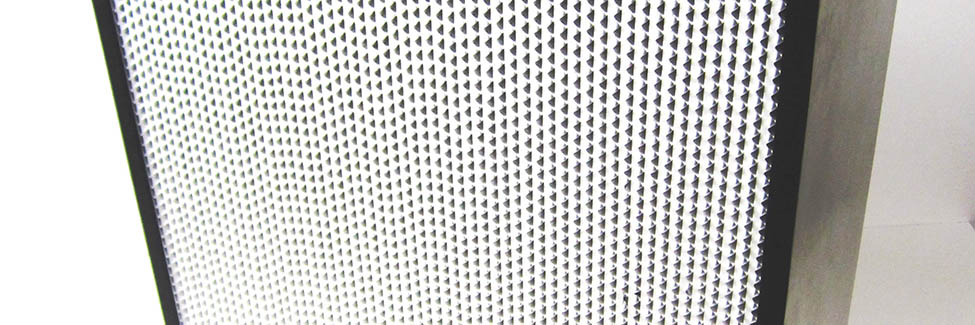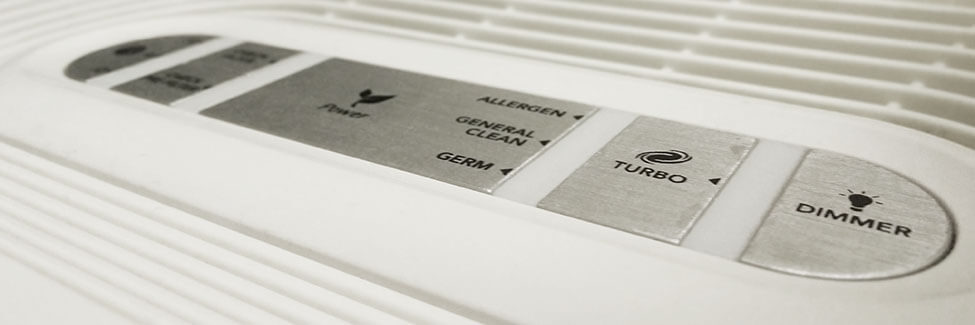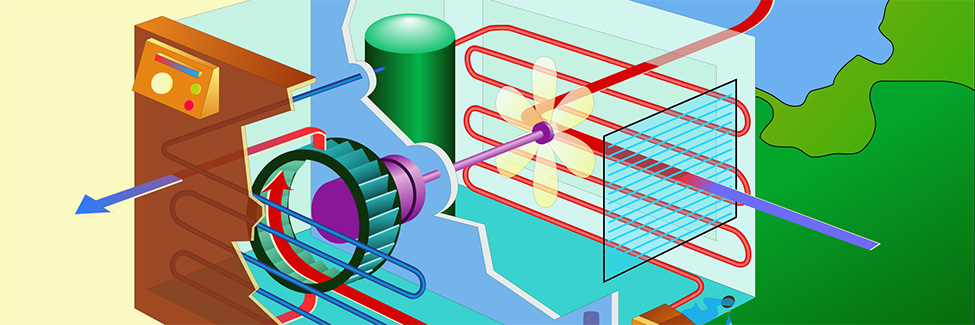
How Do Air Purifiers Work?
Air purifiers are common household products that are designed to remove harmful contaminants from the air. According to the EPA, indoor air contains more than five times more contaminants than outdoor air. Air inside a home often circulates unfiltered for days before being replaced. Unfortunately, air that is usually filled with contaminants like dust, pollen, or pet dander, which can cause severe respiratory problems and chronic fatigue.
What’s the solution? Air purifiers! They’re designed to clean the air that circulates in your home so that your indoor air stays clean, and your family can live a healthy life.
How Air Purifiers Work
Some air purifiers are built into a home’s ventilation system, while others operate as standalone units. Purifiers that are attached to your home’s central ventilation system are generally designed to filter all of the air in your entire home. Standalone units, on the other hand, are usually only designed to filter the air in smaller area.
All air purifiers rely on circulating air before passing it through a filtering mechanism.
When air passes through an air purifier, contaminants, debris, and microscopic particles are removed to provide a high level of air quality. Some purifiers are designed to remove specific types of contaminants. You may want to use a filter made of paper, mesh, fiber, carbon, or other materials depending on your budget and the type of air quality issue that you are looking to address.
Filter-Based Air Purifiers
Air purifiers commonly use filters to remove contaminants from the air. Filters have to be replaced and cleaned on a regular basis so that they will continue to function properly. Manufacturers usually make changing filters straightforward so that consumers can change a product’s filter on their own. Nevertheless, professional help is still necessary in some cases. Additionally, some filters are designed to be easily cleaned with soap and water while other filters are disposable products that have to be replaced.
High-Efficiency Particulate Air (HEPA) filters are considered the gold standard in the world of air purifiers. HEPA filters are designed to allow less than 0.03% of particles in the air to pass through. When shopping for a filter-based air purifier, you should ensure that products you are considering meet the Department of Energy’s HEPA standard so that you can be sure that your purifier will perform effectively.
Ionizing Air Purifiers
Ionizers are designed to purify air by grabbing particles using static electricity. As air passes through an ionizer, a metal mesh that acts as a filter is electrified. Since almost all particles in the air have a neutral charge, they can easily be picked up by charged ions created by an electrical field.
There are ionizing air purifiers that work very effectively, but you should make sure that ionizers are appropriate in your particular situation. Additionally, you should confirm that an ionizer you are considering has been approved by reputable regulatory organizations. However, if you pick the right ionizer, you can enjoy clean air without needing to continuously replace your purifier’s filter.
Other Types of Air Purifiers
Air purifiers have a broad range of use cases, so manufacturers have developed many different types of purifiers that are designed for unique applications.
One of the most common alternative types of air purifiers is an ozone-based purifier. Most ozone-based purifiers use UV light to disinfect and deodorize air as it passes through. Unfortunately, ozone can be poisonous in excessive concentrations, and ozone-based purifiers can have limited effectiveness in many cases.
Some purifiers also make use of adsorbent materials that are designed to remove fumes, chemicals, and odors from the air. Adsorbent purifiers are often needed in industrial applications since they rely on chemical reactions that capture a very high percentage of contaminants that pass through.
Do Air Purifiers Really Work?
If you are wondering how air purifiers work, you’re probably also curious about their effectiveness. Filters, ionizers, and adsorbents are all proven technologies that have been given approval by regulatory agencies. By doing your research before choosing your air purifier, you can be sure to get great results that will keep your family healthy with reliably clean air.
Looking for recommendations on buying air purifiers? Read our guide: The 4 Best Air Purifiers.
Still have questions? Ask an HVAC expert directly via chat or phone.
Published on 2020-03-15 by Ben Travis
Last updated on 2020-03-15


